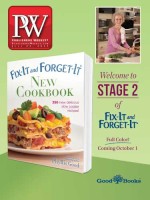Cooking can be a kind of self-expression. Aside from the obvious purpose of providing nourishment, cooking may inspire a mood, and, under the right circumstances, be positively transporting, for both the cook and the diner.
Writing is another form of self-expression, and it’s always nice to have more than one. I am a cook who writes about food, among other things. (Full disclosure: I was an English major before I ever thought of cooking professionally.) Food writing can be daunting: there are just so many ways to say “delicious,” and everywhere are shameful examples of overused food adjectives. Yet there are odes to asparagus and poems about pancakes.
Food is evocative. The mere aroma of onions slowly stewing, or bacon frying, or tortillas on the griddle will instantaneously summon a childhood memory or a long-forgotten moment. For me, a mere whiff of pasta cooking is a culinary trigger. Something about the steamy starchy vapors haunts me every time, and in my mind’s eye I see an old battered aluminum pot and colander—my mother’s. That pot produced some rather mundane dishes, but just the smell of boiling noodles, even now, carries a hint of nostalgia. And it’s strange how the nose can name a dish long before the eyes have noticed. Every ingredient has its own perfume.
Writing about food can be a way to document a culinary event. Indeed, it is a slower way than dashing off a quick tweet or photographing each dish in a meal and zapping the image to the known universe before eating it. Such technological advances are amazing, and a picture may well be worth a thousand words, but the images become obsolete at an incredibly rapid pace. The nuanced history behind these “sound bites” might deserve elucidation; often more words are required to tell the story well.
Why write? The truth is, writing is fun, at least when it’s not excruciating. Finding the right word may come easily, or it may not. The jigsaw-puzzle process of editing and improving a piece brings with it highs and lows. Each attempt is a kind of journey, and reaching the destination, though ultimately necessary, is not the goal. Getting there, pitfalls and all, usually brings with it a moment or two of satisfying clarity. So I continue to put pen to paper and fingers to keyboard, hoping to illuminate (for myself and others) the glory of new crop garlic or the thrill of eating a ripe tomato al fresco.
For an author needs an audience to complete the picture. Without a reader, there is no dialogue. Why talk if no one is listening? Writing truly is another way of speaking. Reading is hearing and seeing and imagining, and, with any luck, perhaps tasting.
David Tanis is the “City Kitchen” columnist for the New York Times, and the author of the forthcoming One Good Dish: The Pleasures of a Simple Meal (Artisan Books, Oct.).



 Volume 260
Issue 29
07/22/2013
Volume 260
Issue 29
07/22/2013





